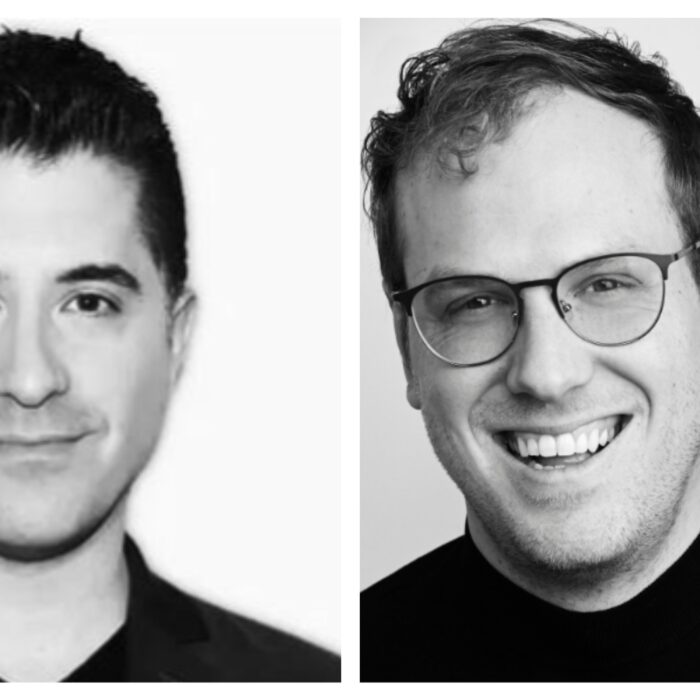
Q & A: Composer Marco Tutino On The Production Of His Opera ‘La Ciociara’ At This Year’s Wexford Festival Opera
By Alan NeilsonOne of the headline operas for this year’s Wexford Festival Opera is Marco Tutino’s 2015 work “La Ciociara,” written for San Francisco Opera. The opera is based on Alberto Moravia’s 1957 novel, which was later turned into a film directed by Vittorio De Sica and starring Sophia Loren, for which she won an Oscar for best actress. The film now has an iconic status within Italian cinema and has become firmly embedded within Italian popular culture.
Its story, which falls neatly into the theme of this year’s festival, “Women & War,” focuses on two women, a mother and daughter named Cesira and Rosetta, and their struggles to survive during the fight for Italy following the allied invasion in World War Two. Their personal tragedies play out against a background of war, in which its full horrors and complexities, along with the inevitable internecine conflicts that infect the population take place. It is a brutal tale that pulls no punches: murder, rape, trauma, fear, displacement, treachery and hunger pile upon the two women whose courage and strength of character are challenged.
Ultimately, and despite everything, the two women survive. The tale is transformed into a life-affirming expression in which understanding, love and hope triumph over the darkness.
If the YouTube video of the opera’s performance at Cagliari in 2017 is anything to go by, then the Wexford audiences are in for a real treat. The Festival has put together an excellent cast for its production, including mezzo-soprano Na’ama Goldman and soprano Jade Phoenix as the two women, and it will be directed by its innovative artistic director, Rosetta Cucchi.
Recently, OperaWire was fortunate to catch up with its composer, Tutino, for an interview in which he provided interesting insights into the background of its composition.
OperaWire: What attracted you to write an opera on the subject of “La Ciociara?”
Marco Tutino: It wasn’t my idea. San Francisco Opera wanted a new opera that was stereotypically Italian. It was actually Nicola Luisotti, who conducted the premier, who came up with the idea.
OW: To what extent is it a representation of De Sica’s film or Alberto Moravia’s novel on which it is based?
MT: I must admit to not particularly liking the book. So I, along with the librettists, Fabio Ceresa and Luca Rossi, worked more closely with the film, although obviously we did make some changes. One major change was in the role of Giovanni. In the film, he appears as a minor character only at the beginning. However, we have expanded the role so that he appears throughout the opera. He becomes a fascist, a collaborator and a murderer, but by the end, he is trying to pass himself off as a partisan. I think his character now brings a deeper level of complexity to the relationships that existed between people in these situations.
OW: Is it a subject that resonates closely with the Italian people? To what extent will it translate to other countries?
MT: The Italian premier took place at the Cagliari Opera in Sardinia, and at the final curtain, the audience was weeping. It is something that my generation is very close to, even if we did not experience the time directly. I remember my father telling me stories about fighting with the partisans in the hills against the fascists. It is a subject that resonates with my generation of Italians, but maybe this is less so with younger generations.
One of the opera’s most significant scenes is the rape of Cesira and Rosetta. It is based on an actual event. Moroccan soldiers, fighting for the French, who were helping to free Italy, raped over 500 women in a town they liberated. These people were supposed to be on our side! The incident has largely been covered up, no doubt because the French government was embarrassed by the fact. It is something that should be acknowledged. In the San Francisco production, the director Francesca Zambello downplayed the incident, but I am not sure why exactly. Maybe she thought it was too strong. It is something I think we should be more explicit about. Having said that, I thought Francesca’s staging was excellent; she really got to the heart of the drama.
OW: Would it be fair to describe your music as being directly influenced by Italian verismo?
MT: Following the Second World War, Italian composers lost contact with the Italian opera tradition. In many ways, this was understandable; it was partly a reaction to fascism and what happened in Italy, but it also happened in other countries as well. The Italian tradition, however, is something very special, and it is something I think needs to be re-embraced. We should never have abandoned it! It was an artificial break in the tradition, and we lost a lot because of this, and we need to rediscover it. My music looks backwards to the tradition and builds upon it. So, you will hear clear melodies that have an Italianate sound. There are distinct arias, choruses and musical interludes. Hopefully, the audience will be able to hear connections between my music and the Italian music of the past.
OW: Do singers find your music comfortable to sing?
MT: Many composers treat the voice as if it were just another musical instrument. They don’t understand it, which is not surprising because if you go to conservatories and music schools, this is how they are taught. I work with the voice, taking into account what the voice is comfortable with. I don’t impose my ideas regardless, and I know for a fact that the singers like it this way.
OW: Was it a comfortable relationship working with your librettists?
MT: Yes it was. Fabio was responsible for the verses and Luca Rossi for the plot, and he altered quite a lot so that would suit the stage. They did a fantastic job. The opera flows really well. It is different in many ways to the film, although the basic narrative is the same. I was really fortunate to work with two such accomplished writers.
OW: Have you made many alterations to the score following its premiere in San Francisco?
MT: After the premiere in San Francisco, I added about 40 bars to improve one of the scenes, but that was all. However, for Wexford, I have to re-orchestrate the entire opera to accommodate the needs of its smaller orchestra. So in essence, this will be a new version.
OW: What are you expecting from the production at Wexford?
MT: Obviously, the opera can be staged and interpreted in many different ways, and it is always exciting to see how the singers and director approach it. It is important that they have the freedom to engage with the work in their own way, as this keeps the work fresh. It also allows me to learn things about the work that I hadn’t expected.
I can’t say much at this stage about what is planned for Wexford, as I don’t want to pre-empt the director, Rosetta Cucchi’s, presentation. What I will say, however, is that from what I have heard about it, it sounds very interesting, and I am really looking forward to the production.



